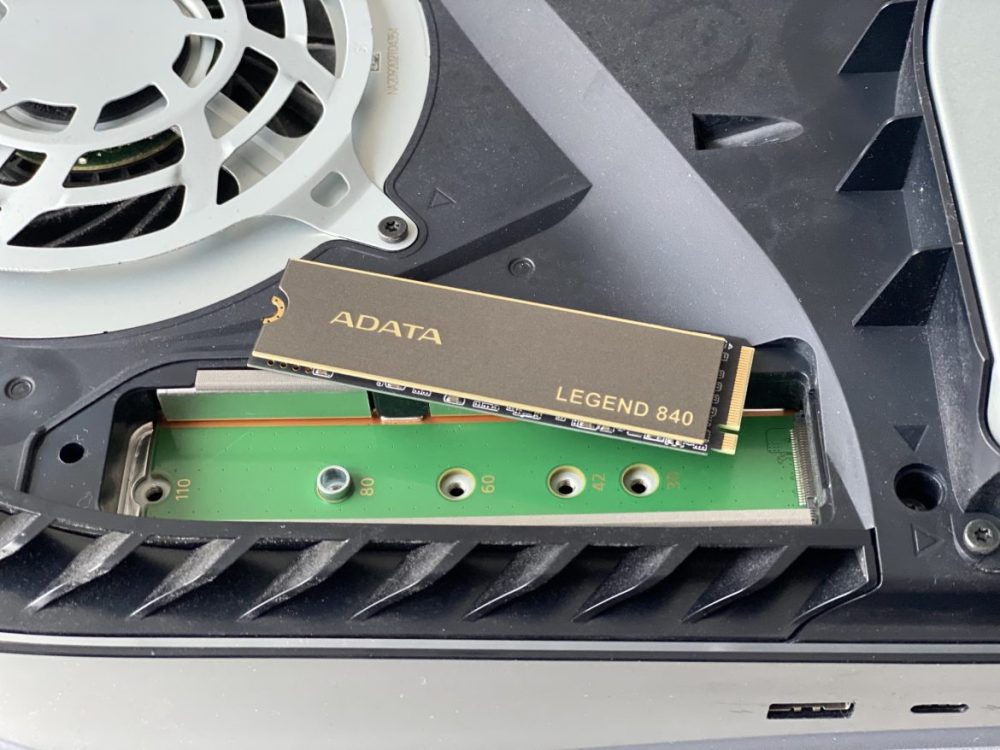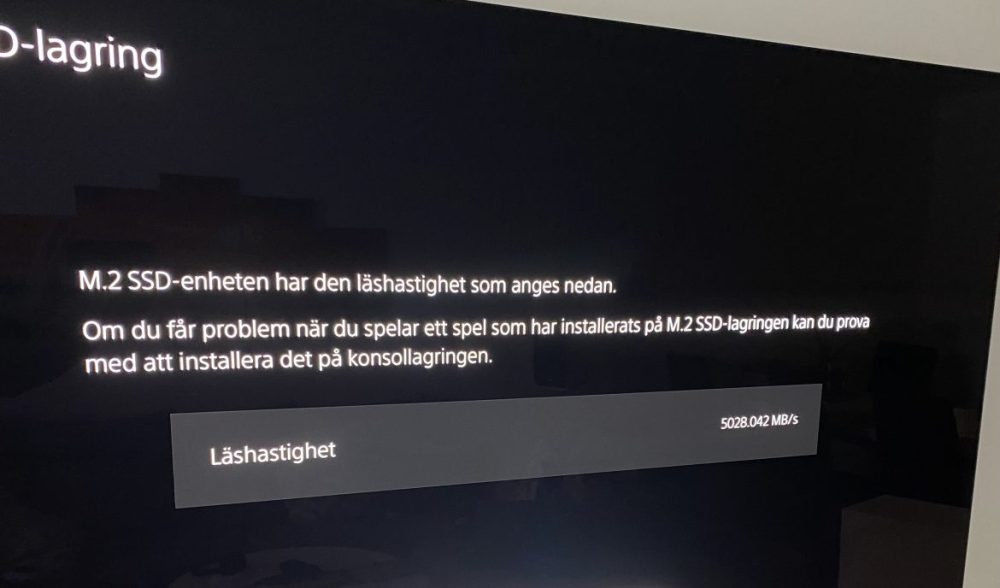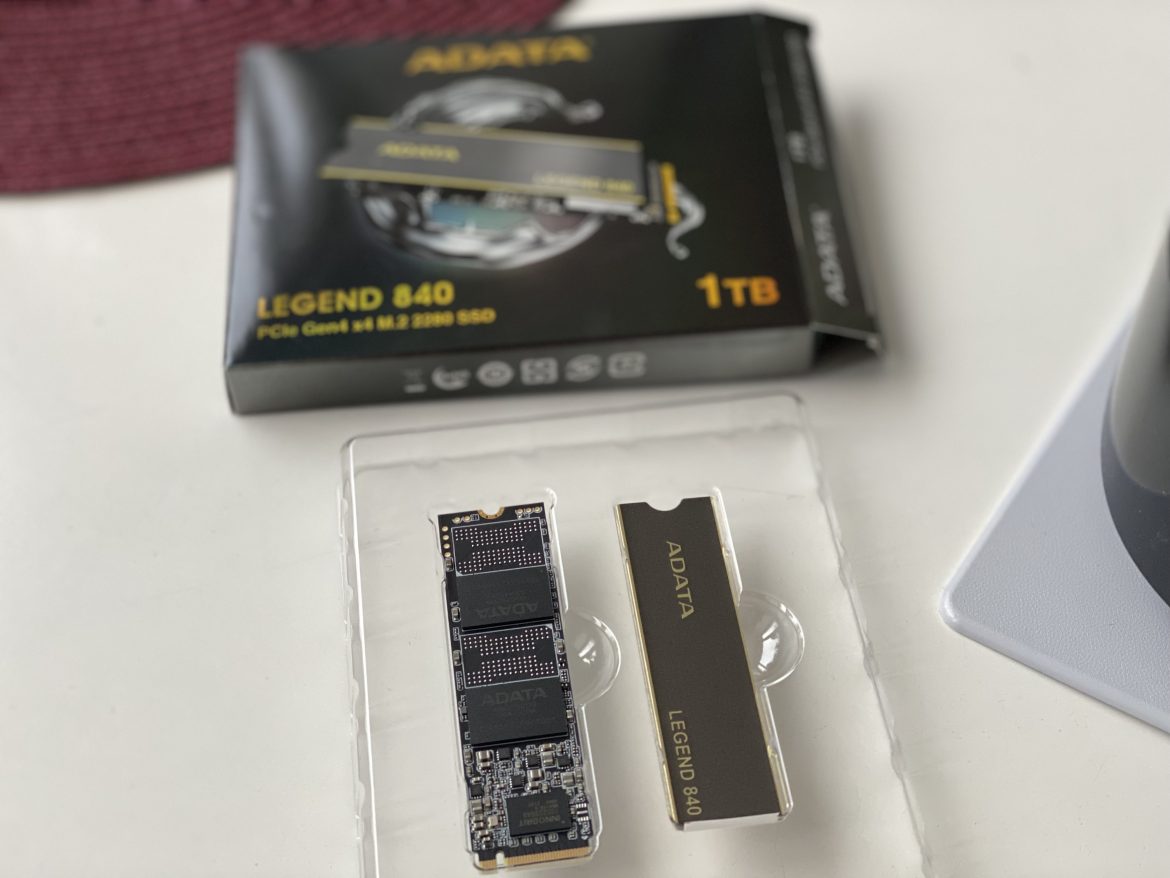TL;DR
PS5 storage is tight, and PS4 external drives won't cut it for next-gen games. Enter M.2 SSDs! The ADATA Legend 840 1TB with a heatsink is a budget-friendly option that gets you *almost* top speeds and handles PS5 games like a champ. While not the absolute fastest, its real-world performance is so close to the internal SSD that you'll barely notice, especially given its much lower price point. Ready to expand your gaming library without breaking the bank? Dive into the full review to see exactly how it performs!
The Playstation 5 has enjoyed considerable success since its 2020 launch. While supply constraints persist, Sony is gradually improving availability, and the critical need for expanded storage can now be addressed. The PS5’s integrated ultra-fast SSD is a technological marvel, but its 825 GB capacity, yielding only 667 GB of usable space, presents a significant limitation in today’s gaming environment. Many current titles routinely approach or exceed 100 GB. While external SSDs offer a viable and cost-effective solution, they are only suitable for PS4 games. Their performance is inadequate for PS5 titles like Ratchet & Clank: Rift Apart, which depend on seamless, near-instantaneous loading. Consequently, the optimal solution for expanding PS5 game storage lies in the increasingly popular M.2 solid-state drives.

The ADATA Legend 840 1TB PCIe SSD Gen4 X4 M.2 2280 is an M.2 SSD equipped with a heatsink, which is a necessary component for PS5 compatibility to prevent thermal throttling. While it doesn’t quite meet the recommended specifications of a 5,500 MB/s read speed (minimum 5,000 MB/s) and a 4,500 MB/s sequential write capacity, it represents a compelling and affordable M.2 SSD option for PS5 users. Detailed performance metrics are discussed below. Historically, a significant barrier to M.2 SSD adoption has been the cost per gigabyte, with 1TB drives sometimes exceeding half the price of the console itself. However, given the lack of alternatives for internal storage expansion, and the practical reality that users typically only actively play a limited number of games concurrently, storage capacity can be managed effectively.
The ADATA Legend 840 1TB is priced at approximately 1500 SEK at the time of this review, positioning it as a highly competitive offering. While faster drives are available, their substantially higher cost makes them prohibitive for many users. Conversely, 512 GB may prove insufficient for many gamers. Upon installation in the PS5’s SSD slot, the drive registered a performance value of 5028.042 MB/s, aligning closely with the manufacturer’s specifications and falling within approximately 10% of the maximum recommended speed (a comprehensive installation guide for M.2 SSDs in the Playstation 5 can be found here).

The heatsink is user-applied to the side with the circuit boards, completing the installation process. The drive can then be utilized internally within the PS5 or externally via an M.2 enclosure, such as the Asus ROG Arion (note that this model lacks an integrated heatsink). Performance is consistently high, with the transfer of 100 GB games completing in mere seconds. In-game performance closely mirrors that of the PS5’s internal storage, with negligible differences, typically within a second or two, and often imperceptible. Should any game exhibit unusual behavior, it can be readily moved to the internal storage.
A significant advantage of the PS5’s architecture is its support for both internal storage expansion and external SSD connectivity concurrently. Internal storage can be expanded up to 4TB (budget permitting), while external storage supports up to 8TB, offering the potential for near-limitless storage capacity (albeit at a considerable cost, potentially comparable to a used vehicle in the largest configurations). This flexibility is a commendable feature from Sony.
In conclusion, the ADATA Legend 840 presents an attractive and cost-effective M.2 SSD solution for the PS5 (and PCs as well, provided compatibility with the host device is verified, particularly regarding potential bottlenecks). While NvmE circuits of M.2 type offer excellent performance, current market conditions, including global component shortages, prevent them from reaching lower price points. Despite a moderate investment of approximately 1500 SEK, the Legend 840 stands as a worthwhile alternative to consider. While it may not deliver peak performance, the practical difference in real-world gaming scenarios is minimal, especially considering its significantly lower cost compared to top-tier competitors.
ADATA provided review samples for this evaluation. The provision of review materials does not influence our editorial objectivity. Our reviews are conducted with our readership (consumers) as the primary focus.

